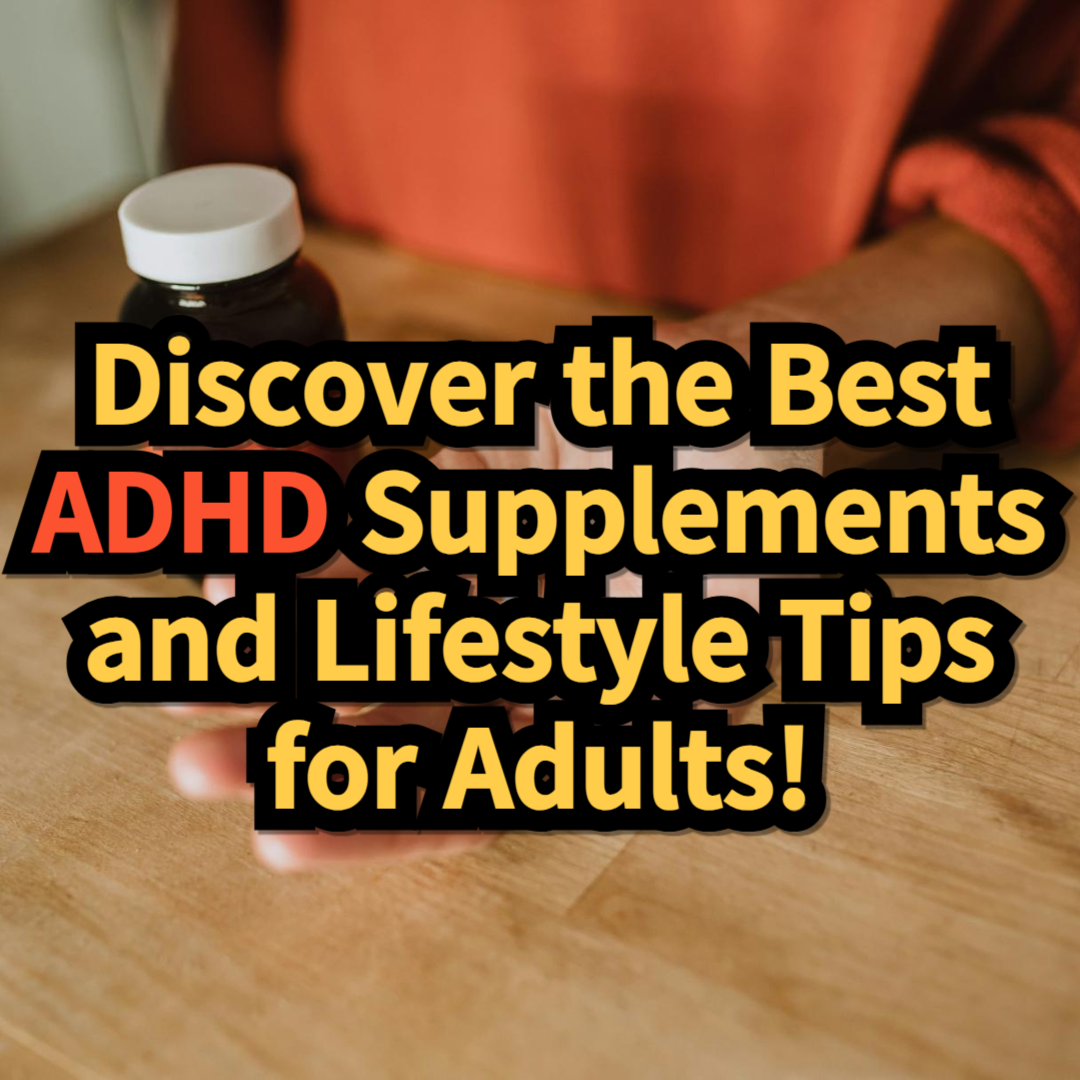Introduction
Attention Deficit Hyperactivity Disorder (ADHD) is a neurodevelopmental disorder that affects both children and adults. While it is often diagnosed in childhood, many adults continue to experience symptoms that can impact their daily lives. Understanding the symptoms and finding effective ways to manage them is crucial for improving quality of life. In this blog post, we will explore the symptoms of ADHD in adults, methods to alleviate these symptoms, and recommend five supplements that may help manage ADHD. Additionally, we will discuss precautions when taking these supplements and provide tips for preventing ADHD symptoms through diet and lifestyle changes.
Symptoms of ADHD in Adults
Early Symptoms
In the early stages, adults with ADHD may experience:
- Lack of Focus: Difficulty concentrating on tasks, easily distracted.
- Disorganization: Trouble keeping track of tasks and managing time.
- Impulsivity: Making hasty decisions without considering consequences.
Mid-Stage Symptoms
As ADHD progresses, symptoms may include:
- Restlessness: Feeling constantly on edge, unable to relax.
- Emotional Instability: Mood swings, irritability, and frustration.
- Forgetfulness: Frequently forgetting appointments, deadlines, and personal items.
Late-Stage Symptoms
In more severe cases, adults with ADHD might face:
- Chronic Procrastination: Persistent delay in starting or completing tasks.
- Relationship Issues: Struggles in maintaining personal and professional relationships.
- Low Self-Esteem: Feelings of inadequacy and low confidence.
Methods to Alleviate ADHD Symptoms
Behavioral Strategies
- Cognitive Behavioral Therapy (CBT): Helps in developing coping strategies and changing negative thought patterns.
- Mindfulness Meditation: Reduces stress and improves focus by promoting present-moment awareness.
- Exercise: Regular physical activity can enhance mood and concentration.
Dietary Adjustments
- High-Protein Diet: Foods like lean meats, eggs, and beans can improve concentration and prolong the effectiveness of ADHD medications.
- Complex Carbohydrates: Whole grains, fruits, and vegetables help maintain steady blood sugar levels, reducing hyperactivity.
- Omega-3 Fatty Acids: Found in fish, flaxseeds, and walnuts, these fats support brain health and cognitive function.
Recommended Supplements
1. Omega-3 Fatty Acids
- Ingredients: EPA and DHA
- Benefits: Improves attention, reduces hyperactivity and impulsivity.
- Price: $20-$30 for a month’s supply.
- Where to Buy: Available on Amazon, iHerb, and health food stores.
2. Zinc
- Ingredients: Zinc gluconate or zinc sulfate
- Benefits: Enhances cognitive function and reduces impulsivity.
- Price: $10-$15 for a month’s supply.
- Where to Buy: Available on Amazon, iHerb, and pharmacies.
3. Iron
- Ingredients: Ferrous sulfate or ferrous gluconate
- Benefits: Supports brain function and reduces symptoms of ADHD.
- Price: $10-$20 for a month’s supply.
- Where to Buy: Available on Amazon, iHerb, and health food stores.
- Ingredients: Magnesium citrate or magnesium glycinate
- Benefits: Calms the nervous system and improves sleep quality.
- Price: $15-$25 for a month’s supply.
- Where to Buy: Available on Amazon, iHerb, and pharmacies.
5. Vitamin D
- Ingredients: Vitamin D3
- Benefits: Enhances mood and cognitive function.
- Price: $10-$20 for a month’s supply.
- Where to Buy: Available on Amazon, iHerb, and health food stores.
Precautions When Taking Supplements
- Consult a Healthcare Professional: Always consult with a doctor before starting any new supplement, especially if you are taking other medications.
- Monitor for Side Effects: Be aware of potential side effects and interactions with other medications.
- Avoid Overdosing: Stick to the recommended dosage to prevent toxicity. For example, excessive iron intake can be harmful.
Preventing ADHD Symptoms Through Diet and Lifestyle
Healthy Foods
- Protein-Rich Foods: Eggs, lean meats, and beans can help improve concentration.
- Complex Carbohydrates: Whole grains, fruits, and vegetables stabilize blood sugar levels.
- Omega-3 Fatty Acids: Fish, flaxseeds, and walnuts support brain health.
Beneficial Behaviors
- Regular Exercise: Engaging in physical activities like walking, cycling, or swimming can enhance focus and reduce stress.
- Structured Routine: Maintaining a consistent daily schedule helps manage time and tasks effectively.
- Mindfulness Practices: Techniques like meditation and deep breathing exercises can improve attention and reduce anxiety.
Conclusion
Managing ADHD in adults requires a multifaceted approach that includes behavioral strategies, dietary adjustments, and the use of supplements. By understanding the symptoms and implementing effective management techniques, individuals with ADHD can improve their quality of life. Always consult with a healthcare professional before starting any new supplement regimen and consider incorporating healthy foods and beneficial behaviors into your daily routine to help prevent and manage ADHD symptoms.
